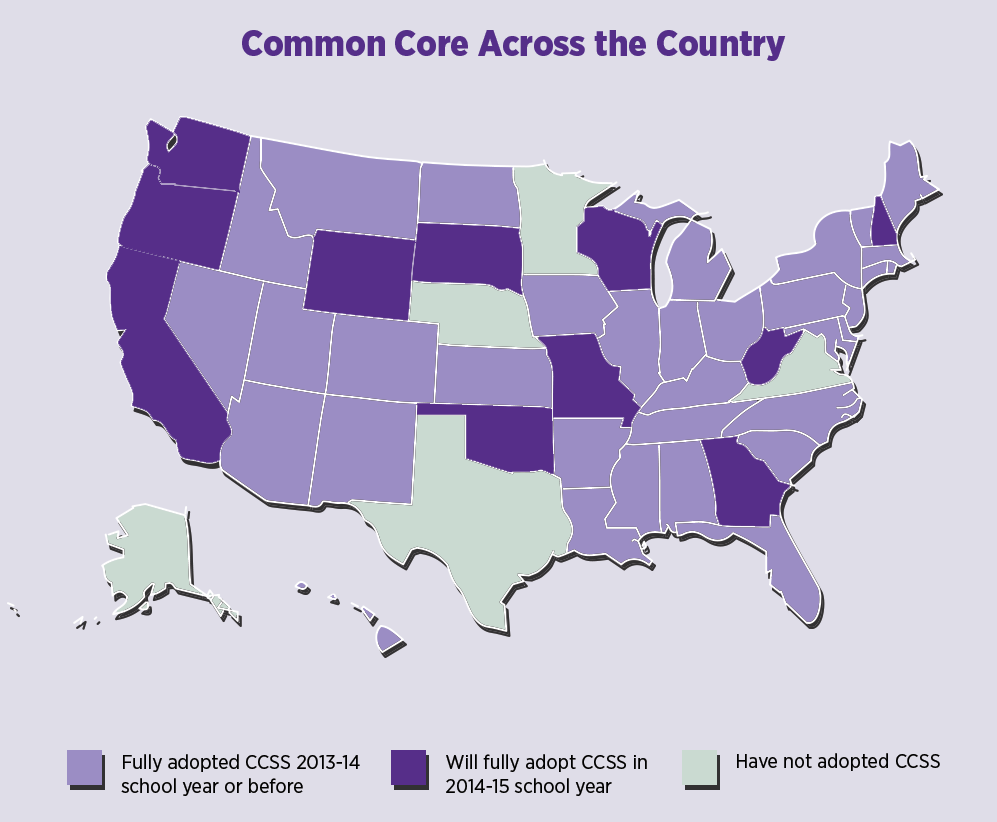
Common Core: Ready or Not?
by Rhandy Siordia, Second Grade Teacher
Which bucket do you fall into? Are you among those who consider California’s shift to the new set of Common Core standards an excessively rigorous yet unfavorably vague collection of expectations for teachers and kids? Or do you welcome the Common Core with open arms in the name of raising the bar by pushing our students to think critically? Well, whichever “bucket” you find yourself sitting in, one question remains constant: what will the transition be like? Will it be smooth and brighten the future for our youngsters as promised, or will the new standards only confuse and disorient teachers, students and parents alike?
Answers to questions like these may seem nearly impossible to predict, but the Common Core is coming, and I know my students and I need to be ready. My approach to the Common Core is no different than my approach to planning a new unit for my class: highly strategic planning and vision-driven execution.

44 states, the District of Columbia, four territories (Guam, American Samoa, US Virgin Islands and Northern Mariana Islands) and the Department of Defense Education Activity have adopted the Common Core State Standards.
Effective Preparation for the Common Core Begins Now
With few exceptions, nearly every educator would agree that the deep consideration and forethought associated with planning a lesson is crucial to achieve meaningful learning outcomes for students. The process of priming students for the demands of next year’s standards transcends the exhausted “Why do you think that?” or “Justify your response with evidence” types of questions, but should be characterized by imparting transferable knowledge. That is, students in classrooms today should be getting in the habit of considering new information as it applies to novel contexts. What we don’t want is for students next year to feel disoriented as teachers focus on instructing true conceptual understanding as opposed to skills only.
As a first year teacher, I’ve been able to leverage the Common Core to help push my students to higher order thinking, something I don’t see as much space for in the framework of the current California State Standards. Since the fall, instructors at my campus have consciously strived to avoid teaching strategies, practice and even language that refers to discrete processes for achieving a learning goal. Personally, I plan my lessons to be more along the lines of “2 tens plus 2 tens equals 4 tens,” and “the value of the digit 4 is 40 since there is a 4 in the tens place” as opposed to “2 plus 2 equals 4, so the 4 goes at the bottom in the tens place.”
Executing Meaningful Lessons Within the Common Core Framework
Even the most well-thought-out lesson can only lead to meaningful outcomes through the most seamless execution possible, whereby the teacher is guided by his clear vision for what mastering the objective actually looks like.
• What questions should students be asking if they truly understand the content?
• What other disciplines, experiences, lessons and trends should the student associate with the new material?
• What conceptual challenges will students likely come across, and how will students gain an even stronger grasp of the concept by thinking through and eventually overcoming these challenges?
As demanding as they may seem, such instructional considerations are crucial to the relentless critical thinking that the Common Core aims to foster in students. As a campus, we have begun researching and implementing best practices around specified content areas that have proven effective in achieving this type of learning. At the conclusion of a lesson, the teacher should be unsurprised by the sequence of ideas presented and challenges that students experience, yet impressed with the meaningful connections, insights and questions students have generated as a result of thinking at this level.
The transition to the Common Core should not be feared — much less resisted — because it will take place whether you’re ready or not. More importantly, the transition is coming whether our students are ready or not. So, will you make them ready? Will you be ready? Which bucket do you fall into?
How do you feel about the Common Core? Share your thoughts in the comments below.
Rhandy Siordia teaches second grade on the founding team at Spark Academy in San Jose, CA. He graduated from University of California, Santa Barbara with a BA of Psychology. Rhandy was born in San Jose and spent his first few years in the neighborhood where Spark Academy is now located.
Published on May 21, 2014
Read more stories about: Personalized Learning.



